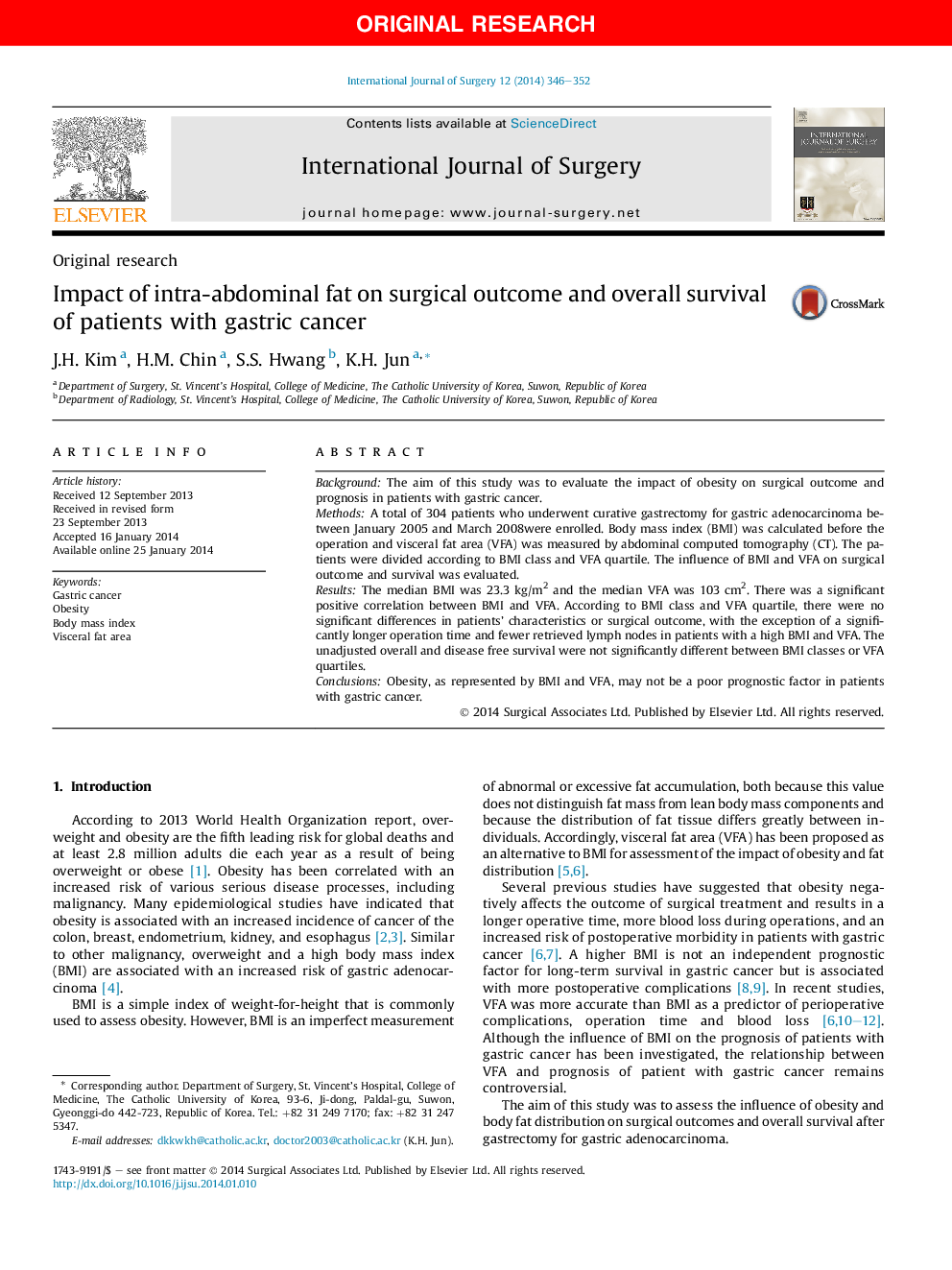| Article ID | Journal | Published Year | Pages | File Type |
|---|---|---|---|---|
| 6251923 | International Journal of Surgery | 2014 | 7 Pages |
BackgroundThe aim of this study was to evaluate the impact of obesity on surgical outcome and prognosis in patients with gastric cancer.MethodsA total of 304 patients who underwent curative gastrectomy for gastric adenocarcinoma between January 2005 and March 2008were enrolled. Body mass index (BMI) was calculated before the operation and visceral fat area (VFA) was measured by abdominal computed tomography (CT). The patients were divided according to BMI class and VFA quartile. The influence of BMI and VFA on surgical outcome and survival was evaluated.ResultsThe median BMI was 23.3Â kg/m2 and the median VFA was 103Â cm2. There was a significant positive correlation between BMI and VFA. According to BMI class and VFA quartile, there were no significant differences in patients' characteristics or surgical outcome, with the exception of a significantly longer operation time and fewer retrieved lymph nodes in patients with a high BMI and VFA. The unadjusted overall and disease free survival were not significantly different between BMI classes or VFA quartiles.ConclusionsObesity, as represented by BMI and VFA, may not be a poor prognostic factor in patients with gastric cancer.
